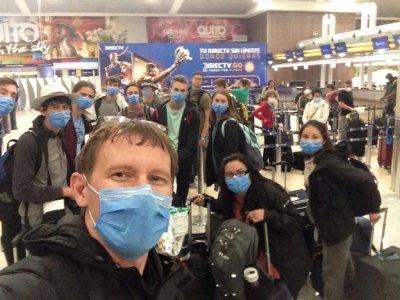Why we still believe in SST

THIS YEAR HAS been a tough one for study abroad and for my first year as director. We had to evacuate our SST students and faculty from Tanzania and Ecuador three weeks before the end of the term, just as they were settling into their service experiences.
It was touch and go as we faced travel restrictions, flight cancellations and quarantines. Our administration, parents and board members appealed to political representatives, Menno Travel rescheduled flights repeatedly and the heroic work of our faculty leaders supported students’ morale. By March 25, everyone was home safely. We are grateful for God’s grace in all of this.
We have now had to cancel four May Term courses and five SST units spanning three semesters. Students have needed to juggle their schedules repeatedly. We hope for a vaccine and wonder when we can go back to travel abroad. But with these challenges come new opportunities and a reaffirmation of our conviction that global education is necessary for every GC student to navigate today’s diverse and interconnected world.
Recent events have clarified what is worth our commitment. The pandemic has precipitated fear of foreigners, with hostility toward Asians in particular. The protests surrounding George Floyd’s death at the hand of a policeman draw attention to systemic racism. To address these issues, we need global education more than ever.
The pandemic itself demonstrates that we cannot solve problems without analysis from a global perspective. We best understand how to do that by looking at a critical issue from the perspective of another culture, place or position. It is in moving from local to global analysis and back again that we begin to see systems at work in the world that advantage some and disadvantage others.
Although we can work at developing empathy with people who are different in a classroom setting, it sinks most deeply into our consciousness when we do the hard work of living in a different culture with host families and working with colleagues through their everyday experiences. By putting our own ways of doing things in this context, we gain a sense of humility and learn to know ourselves better. If our nation’s leaders all had these SST experiences in Ecuador or Senegal, China or Tanzania, Indonesia or Chicago, the world might be different now.




